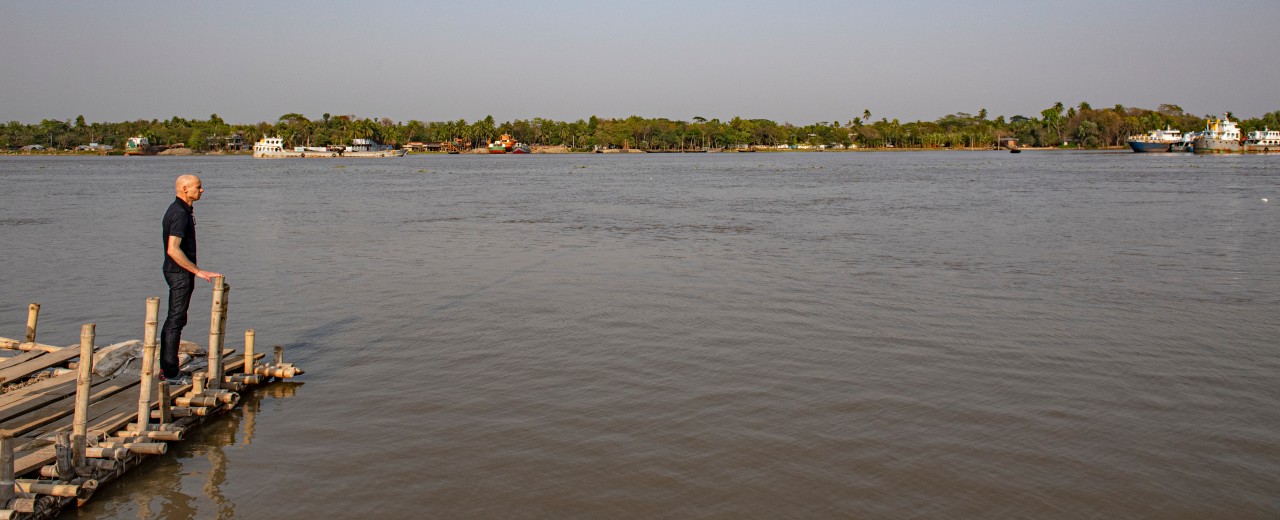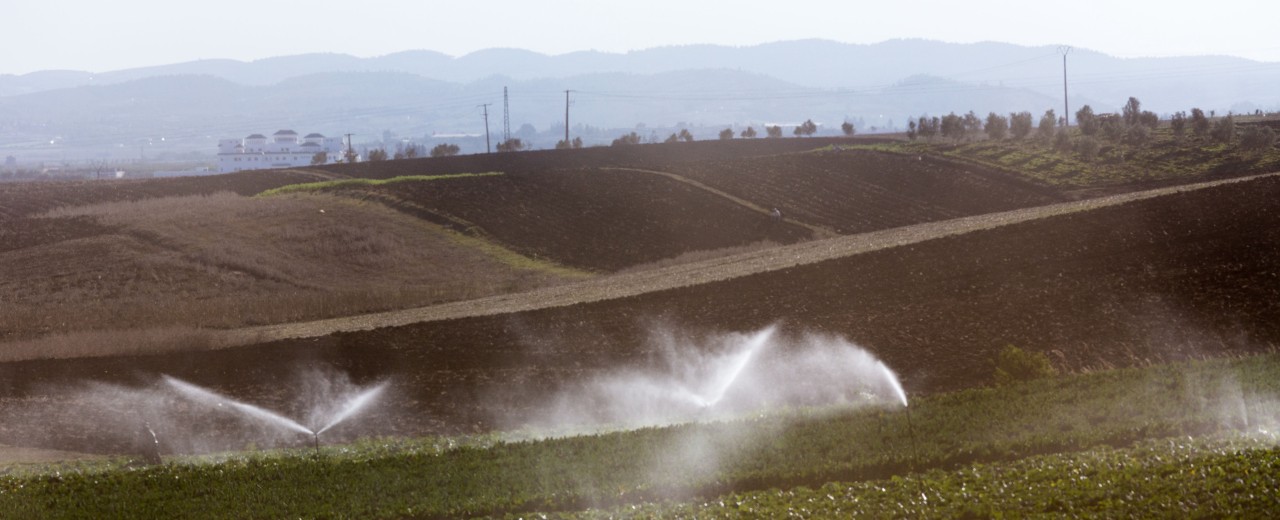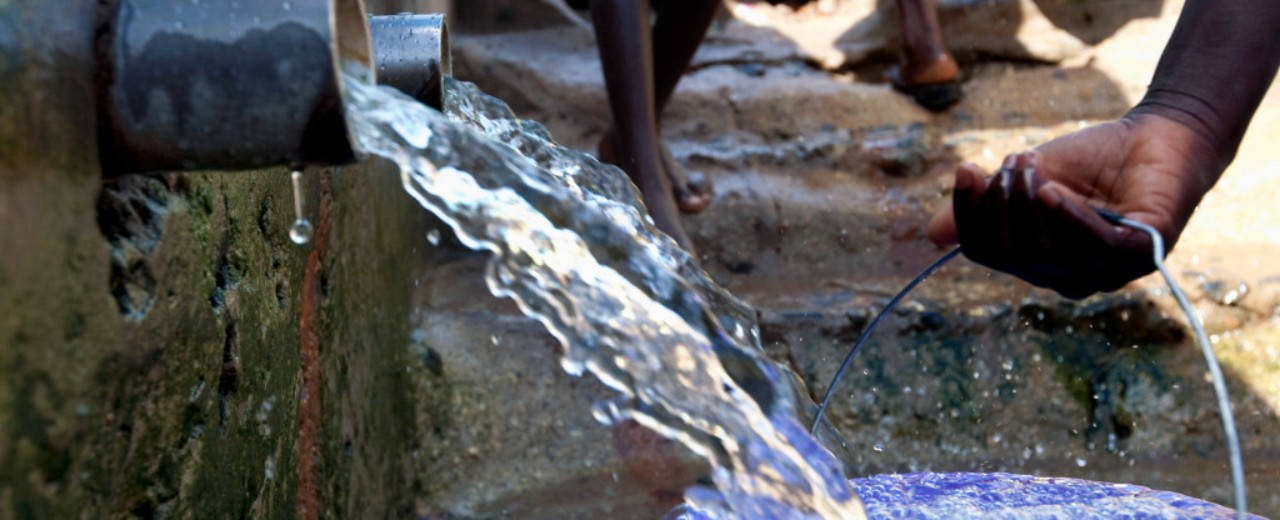Interview with Henk Ovink
„We still take water for granted“In an interview with Friederike Bauer senior water expert Henk Ovink talks about the global water crisis and why we don’t value this basic element of life.
Published August 2024, updated March 2025

It’s a mixture of professional and personal reasons. Water, as you know, plays a huge role in my home country, the Netherlands. Almost one third of our land is below sea level and about two thirds is endangered by floods. So, we all grow up with a consciousness about water topics. Plus, in my younger years I was sailing, even regattas, and I love to swim in any freshwater stream I can find. One of my first projects as a planner in The Hague was also all about water, and it never stopped, it's endless. Ever since I have been dealing with water issues from different angles. So, personal and professional interests merged nicely into one stream, if you wish.
We are facing a global water crisis that is further deteriorating by climate change and biodiversity loss. Keeping this crisis untackled will endanger all the SDGs, making them virtually impossible to achieve. It will endanger food security, health and increase poverty, to name just a few, and we won’t be able to resolve climate change without resolving the water crisis. So, there is an urgent need for change in the way we deal with water. Our Commission is to raise awareness through this in-depth understanding of the challenge and bring novel perspectives for a sustainable action and use of water resources.
The Commission was convened by the Government of the Netherlands and is facilitated by the Organisation for Economic Co-operation and Development (OECD). Launched in May 2022, we are working on three levels: One is analysis and research on the current and future state of this water crisis in its relationship to the economy at large, including future projections as well as innovative ideas for transitions that are equitable and just. The second level is engaging with groups and communities and making sure their views are considered. And thirdly we design action pathways that build coalitions for change.
We are overusing and polluting water resources at a scale never seen in the history of this planet. While almost half of the world’s population – nearly four billion people – do not have a safe toilet to go to and more than a quarter does not have access to safe drinking water. That to me is a real scandal because it severely undermines people’s security, quality of life, development opportunities, and is detrimental to their health. That means, we have to bridge this water security gap fast in order to fulfill basic needs. Yet, it has to be done without further depleting water resources. Instead, we have to restore the water cycle globally by radically changing land use and food production, reverse biodiversity loss and make our economy circular – and all at the same time.

It starts with a different mindset. We must look at our economies through a water lense. Right now, we still take water for granted, pretend as if it was endlessly available. It’s seen as a resource that is there for everyone – always. Instead, we should be aware that everything links to and depends on water and thus make its equitable and sustainable use a priority everywhere. Presently that is not the case.
Absolutely. Water has an immense value for us, yet this is not reflected in the way we deal with it, in the way we develop our economies, collaborate across society and deal with transitions. Water is absent while it should be the catalyst to bring change. However, I do see a global dynamic that is hopeful since the second ever UN Water Conference in 2023. With the Commission we want to push and inspire that movement, help speed and scale up actions and transitions.
We could, but right now we are not on track. In fact, many of the SDGs are in peril. Yet, every dollar or euro invested in water creates opportunities, for people and societies, precisely because water is connected to everything and everyone.

You need a holistic approach that involves national water strategies, break them down to the regional and local level, include people and communities, create the necessary capacities, and secure validation mechanisms for just transitions and water security. The important thing is to follow it through. It’s about consistency, continuity and commitment. I call that the three „Cs“
Sure. I have an example from Chennai in India. We were looking for a solution to tackle the water problem there. It consisted of three major challenges: floods, water scarcity and pollution – and they all were interrelated. The project was called “City of 1,000 Tanks” within which we started to collect rainwater, treat wastewater and runoff pollution with decentralised Nature-based Solutions. In parallel the underground aquifer was recharged. This approach is holistic and it reduces the CO2 footprint by 80%.
I do very much so, also because decentralised wastewater treatment plants are getting better and better. Plus, modern plants can produce their own energy and deal with biodiversity issues. There is a new generation of such plants with a good business case that make reused and recycled water more viable than in the past.
We also see improvements here. In the past they used up enormous amounts of energy and were super costly. They heated up the water and the brine were toxic – many disadvantages. Now energy consumption is lowered, costs too, with innovative ways for reusing the brine and not destroying the environment. Also, the water does not always have to be desalinated all the way to the consumer level quality but can be used and reused e.g. for industrial and agricultural purposes. But reduction and reuse of water come first. Desalination can make sense, particularly in arid regions and small islands. There it can be a matter of life and death. So, it has to be contextualised.
We are already there because water issues can seriously undermine security and stability, even if they are not the main driver in a conflict. Also, water infrastructure is being used as a target in conflicts, like the Russians hit wastewater treatment plants and drinking water facilities as part of their aggression, from the start. So, yes, water is a serious factor in conflict regions and with climate change will be even more so. That’s another reason why we now seriously have to tackle the global water crisis on all levels.
Share page
To share the content of this page with your network, click on one of the icons below.
Note on data protection: When you share content, your personal data is transferred to the selected network.
Data protection
Alternatively, you can also copy the short link: https://www.kfw-entwicklungsbank.de/s/enzB1cyP
Copy link Link copied